Wes Anderson films, ranked

- Oops!Something went wrong.Please try again later.
- Oops!Something went wrong.Please try again later.
Each one of Wes Anderson's films is a unique creation, a carefully cut jewel on an embroidered cushion in a painted box wrapped in repurposed sheet music delivered in a bicycle basket. And yet, for all their singularity, each movie undeniably falls into the clear category of Anderson himself, sharing the filmmaker's poetic perspective, dry wit, and precise attention to detail across framing, setting, music, wardrobe, and every other formal element of his art.
In anticipation of the (long-awaited) release of Anderson's 10th feature, The French Dispatch, EW ranked the auteur's idiosyncratic, highly symmetrical filmography. Read on to see where your favorite landed, and come back soon to see where his latest winds up on the list.
10. <em>Isle of Dogs</em> (2018)
Stop-motion animation plus dogs should be the ultimate recipe for success, and there is plenty to like here. Stop-motion puppies? C'mon! A phenomenal voice cast? Trademark Anderson production design? An unforgettable score by frequent collaborator Alexandre Desplat? Check, check, and check. The film's political subtext about immigration and designating people as "other" is clear and ever-relevant, but where Isle of Dogs loses its footing is with what critics found to be the film's use of cultural appropriation and the white savior trope. The line between homage and appropriation is always a delicate one to balance, and here it dirties the waters of an otherwise tenderhearted, if bleak, film. —Lauren Huff
Related: Go behind the scenes of Wes Anderson's stop-motion Isle of Dogs

9. <em>The Darjeeling Limited</em> (2007)
There's a lot to like in The Darjeeling Limited, Anderson's modestly-scaled rebound from the commercial and critical failure of 2004's The Life Aquatic. There's the delightful titular train, three great performances by Owen Wilson, Adrien Brody, and Jason Schwartzman as the estranged brothers at the movie's center, and a mid-film flashback that ranks among Anderson's most visceral gut-punches. But there's also a lot to dislike, not least the film's exoticized treatment of India and its people (and its debatable level of self-awareness about this), along with some of Anderson's least elegant tonal shifts and symbolism. (The brothers are toting their late father's old luggage through India, because they're still carrying the emotional baggage of his death, you see!) And ultimately, Darjeeling can't help but feel transitional and minor compared to the more coherent and controlled works that came before and after it; like his characters, Anderson seems to be finding himself again through the film. —Tyler Aquilina
Related: Talking about The Darjeeling Limited

8. <em>The Life Aquatic with Steve Zissou</em> (2004)
Without question Anderson's most "love it or hate it" movie is The Life Aquatic with Steve Zissou. Sometimes it seems like either you proudly sport a red Team Zissou beanie and happily listen to Seu Jorge's Portuguese covers of David Bowie, or you think Anderson's follow-up to The Royal Tenenbaums jumped the jaguar shark straight into incoherence. Life Aquatic is certainly a strange beast, jumping rapidly between genres (this movie starts at a film festival, embarks on a sea voyage, and becomes an action spectacle once the pirates show up) and tones (midlife crises compete with romantic adventure and bittersweet familial reconciliation). The kind of all-consuming obsession that seems charming on the children of Moonrise Kingdom feels much more sour coming from Bill Murray's middle-aged oceanographer. But for those with the patience to endure its excesses, Life Aquatic has real beauty to offer. "I wonder if he remembers me?" —Christian Holub
Related: The Life Aquatic cinematographer on staging one of Wes Anderson's most emotional

7. <em>The French Dispatch</em> (2021)
In some ways, it's surprising that Anderson took this long to make an anthology movie. The French Dispatch demonstrates that the director's strengths and tastes are well-suited to collecting multiple different stories within an overarching framework. Like previous list entries Darjeeling Limited and Life Aquatic with Steve Zissou, French Dispatch swings between different tones (from the fervor of young love to the cold alienation of midlife crisis, from the inhumanity of prison to the overwhelming energy of revolution) but such transitions make more sense when they're laid out like the different sections of a magazine. The segmentation also allows Anderson to pack in as many movie stars as possible, both old favorites like Bill Murray and new collaborators like Jeffrey Wright — the latter particularly shines as a globe-trotting James Baldwin analogue in the film's final chapter. The French Dispatch at once finds Anderson reaching back to his formative French New Wave influences (using black-and-white coloring more than any project since the original Bottle Rocket short film), and also breaking new ground with extended 2D animated sequences. After all these years, Anderson still has room to grow. —Christian Holub
Review: The French Dispatch review: Wes Anderson at his most Wes Anderson-y
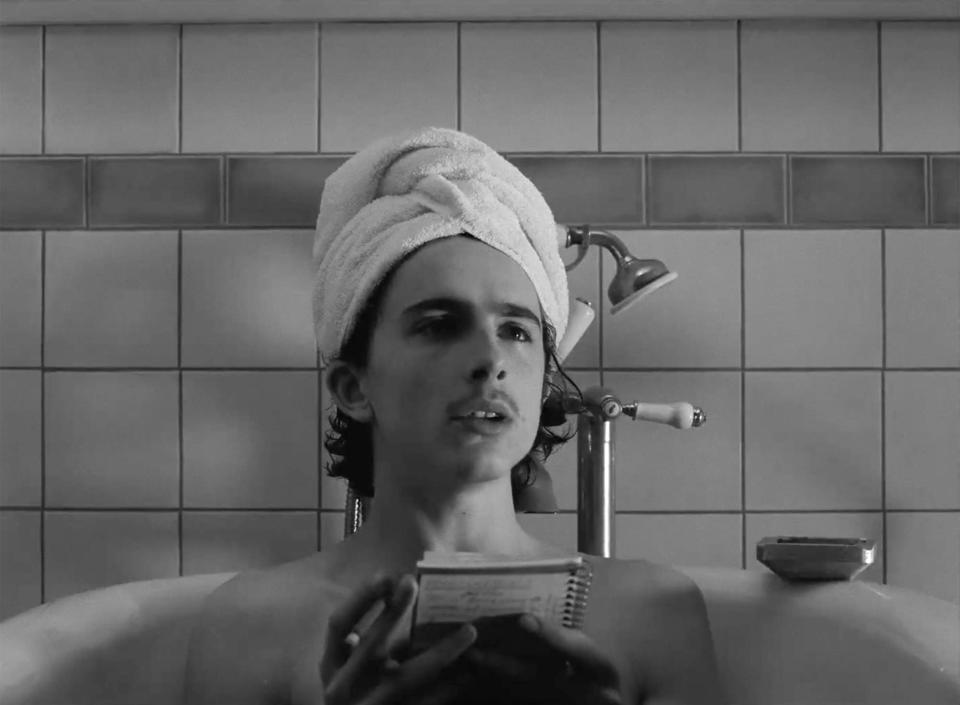
6. <em>Bottle Rocket</em> (1996)
"Raw" is not a word that often comes to mind when considering the work of Anderson. But in comparison to the meticulously-crafted masterpieces that came later, the director's debut film feels downright loose. That tension between order and chaos is the magic of Bottle Rocket. Dignan (co-writer Owen Wilson in his cinematic debut) desperately wants to belong to a later Anderson movie, where characters build their own intricate fantasy worlds around themselves. Dignan's dream is to be a brilliant and stylish robber out of a Michael Mann movie, and his idol Mr. Henry is played by the original Mann protagonist, James Caan. But unlike Caan's character in Thief, Dignan can't assemble a competent crew; his best friend Anthony (Luke Wilson) is too busy falling in love. When Dignan finally gets a crack at a real robbery, he turns out to be as comically ill-equipped for it as poor safecracker Kumar (Kumar Pallana). The grandiose ambition of Dignan's "75-year-plan" would be left for subsequent Anderson films to realize. —Christian Holub
Related: Bottle Rocket review

5. <em>Fantastic Mr.Fox</em> (2009)
Considering Anderson's thoroughness in creating painstakingly detailed environments, it's almost surprising that he waited until his sixth film, a stop-motion adaptation of Roald Dahl's children's book, to make a fully animated feature. The format allowed him to build a world entirely from scratch, and what a world it was — the largely subterranean kingdom of charming rascal Mr. Fox (George Clooney), populated by starry-voiced animals with a wholly and humorously realized way of life (whack-bat!), is as credibly immersive as any of the filmmaker's more human spaces. So, too, is the Fox family's drama: While the plot follows Mr. Fox pulling off a series of increasingly elaborate heists, there are genuine emotional stakes attached by way of his relationships with his wife (Meryl Streep) and son (Jason Schwartzman). It's a lighter entry in Anderson's oeuvre — a little indulgent, a little absurd — but, even in its lightness, displays a tidy sort of perfection. —Mary Sollosi
Related: Fantastic Mr. Fox composer Alexandre Desplat on joys of working with 'mischievous' Wes Anderson
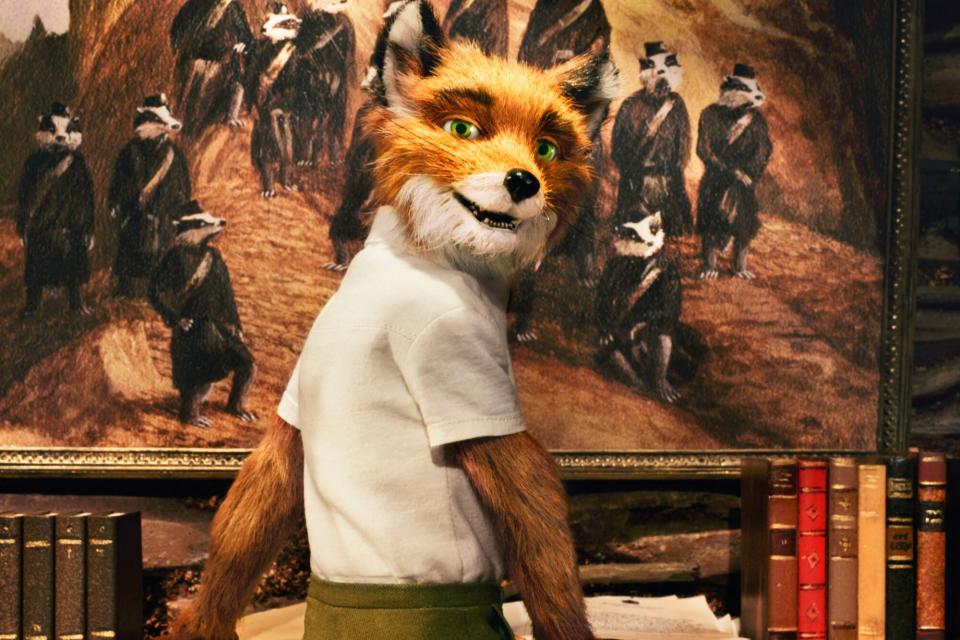
4. <em>Rushmore</em> (1998)
Rushmore is rather like one of Anderson's signature shots: everything is in its right place, and no element is wasted. Every moment helps propel the sharp coming-of-age story forward or reveals something about one of its three central characters: 15-year-old high school impresario Max Fischer (Jason Schwartzman); the first-grade teacher he attempts to woo, Rosemary Cross (Olivia Williams); and Herman Blume (Bill Murray, in his first and best performance for Anderson), the depressed steel magnate in whom Max finds a kindred spirit, and who forms the third point of this bizarre love triangle. Indeed, many still feel Anderson has never topped Rushmore, the last of his movies that seems to take place outside of his fantastical universe. That grounded quality sets the film apart, but it also works in its favor: Rushmore seems almost like a perfect thing all its own, off in a class by itself. —Tyler Aquilina
Related: Rushmore's Herman Blume inspired by Ted Turner

3. <em>Moonrise Kingdom</em> (2012)
Many of Anderson's familiar quirks run through his gorgeous seventh feature, but nowhere else has he deployed them to such tender effect. Young discoveries Jared Gilman and Kara Hayward star as two 12-year-old misfits living on a fictional New England island in the mid-1960s who fall in love and run away together. Anderson cuts the sweetness of his premise by suffusing the tale with his trademark wit and refusing to render his achingly sincere heroes as darling oddities; instead, the intense pair's view of their own escape, which they perceive in epic terms of love and bravery and perhaps a little bit of magic, becomes the truest interpretation of the drama. The filmmaker's tastes for impracticality, plans and protocols, and self-serious characters (portrayed here by the uniformly hilarious adult cast alongside the young stars) rarely make such perfect sense as they do in Moonrise Kingdom, wherein a dreamer's childlike vision of romance and adventure is fully, triumphantly realized. —Mary Sollosi
Related: There Should Be a Sequel: Moonrise Kingdom
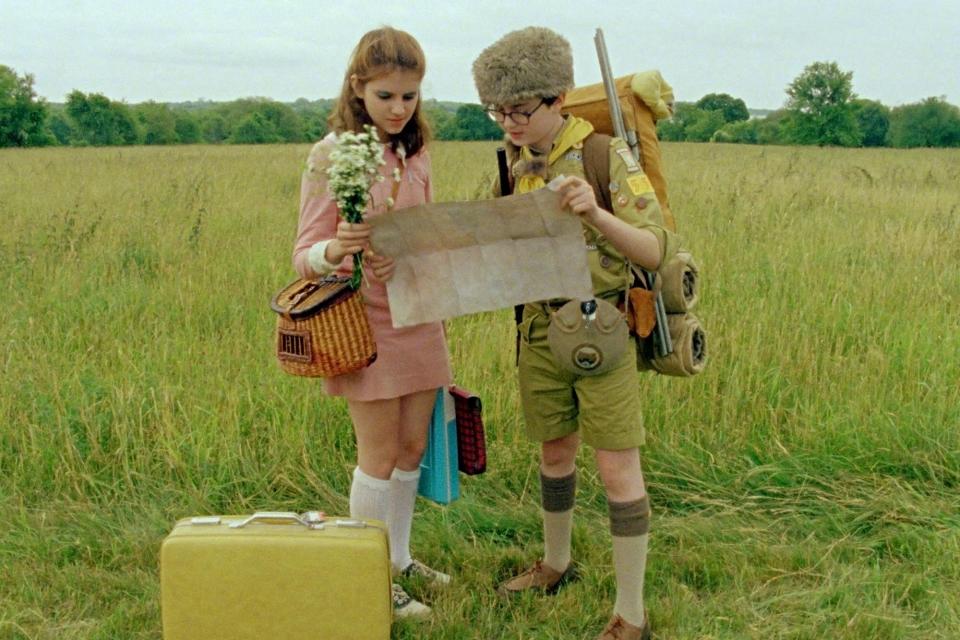
2. <em>The Grand Budapest Hotel</em> (2014)
The Grand Budapest Hotel is the full culmination of Anderson's filmmaking prowess, and it just barely missed out on EW's No. 1 spot. Beautifully framed and intricately detailed, with all of that wit and quirk the auteur is known for, Budapest is a cinematic embarrassment of riches. The production design, the cinematography, the sharp color palette, the distinct costumes, and an incredible performance from Ralph Fiennes all work together to bring to life Anderson's vision. The film's accolades speak for themselves: The film would receive nine Oscar nominations, tied for the most that film year. It won four — Best Original Score, Best Production Design, Best Makeup and Hairstyling, and Best Costume Design — and earned Anderson his first nods for Best Director and Best Picture, making it his most acclaimed feature yet. —Lauren Huff
Related: Wes Anderson on The Grand Budapest Hotel and making a Bond film
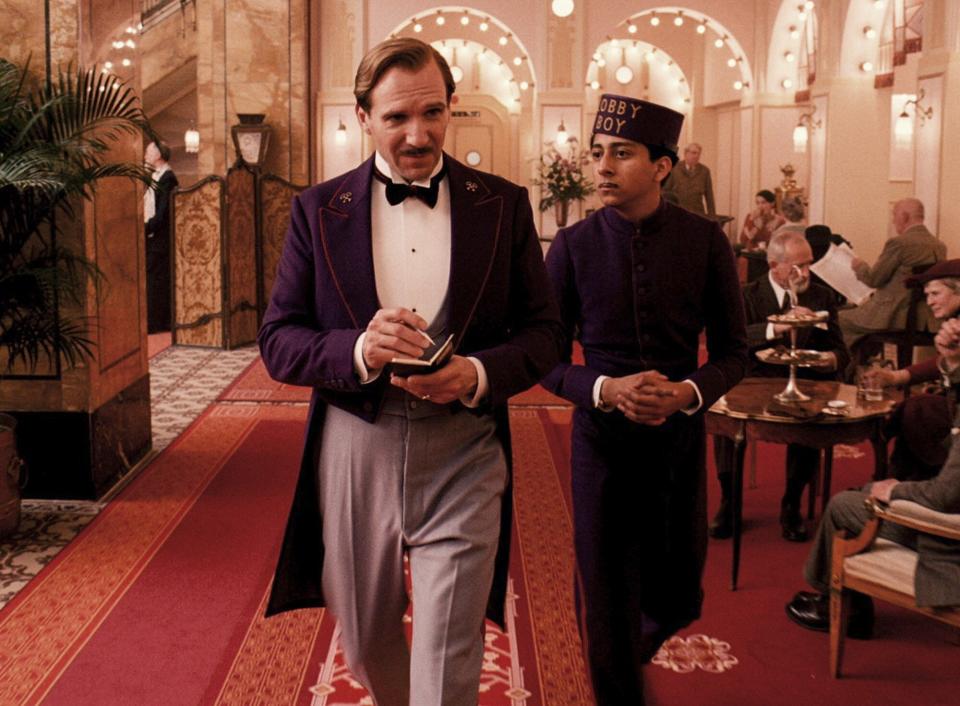
1. <em>The Royal Tenenbaums</em> (2001)
If there's one thing that defines the films of Wes Anderson above all else, it's not immaculately composed shots, whimsical costumes, dry one-liners, or any of the other elements so easily and often parodied. Rather, it's the sense of loss and melancholy that haunts all his films, and injects a stark psychological realism into even the most outlandish of Anderson's dollhouse worlds.
Never has this central tension been better achieved than in Anderson's third feature, 2001's The Royal Tenenbaums, which begins with a divorce that ruptures the eponymous family and sets the stage for the comedy of trauma and regret that follows. The visual and aural pleasures herein are dazzling, from the wondrous house on Archer Avenue to the still-iconic costumes to Alec Baldwin's wry narration to Anderson's most pitch-perfect soundtrack (spanning Paul Simon, Nico, Elliott Smith, and more). But the movie sits atop this list because of the bruising humanity of the Tenenbaum clan that populates this meticulously arranged universe: Chas (Ben Stiller) and his unprocessed grief, Richie (Luke Wilson) and his yearning love for his adopted sister Margot (Gwyneth Paltrow), Margot's own ennui and searching for somewhere to belong. And then there's their father, Royal (Gene Hackman, in a towering late-period performance), desperately trying to force his way back into his children's lives and win back their love. Some other Anderson films might be more perfect, but The Royal Tenenbaums is glorious in its imperfection — and indeed, a loving portrait of humanity's own glorious imperfections. —Tyler Aquilina
Related: The Royal Tenenbaums costume designer looks back on dressing 'a family in decline'
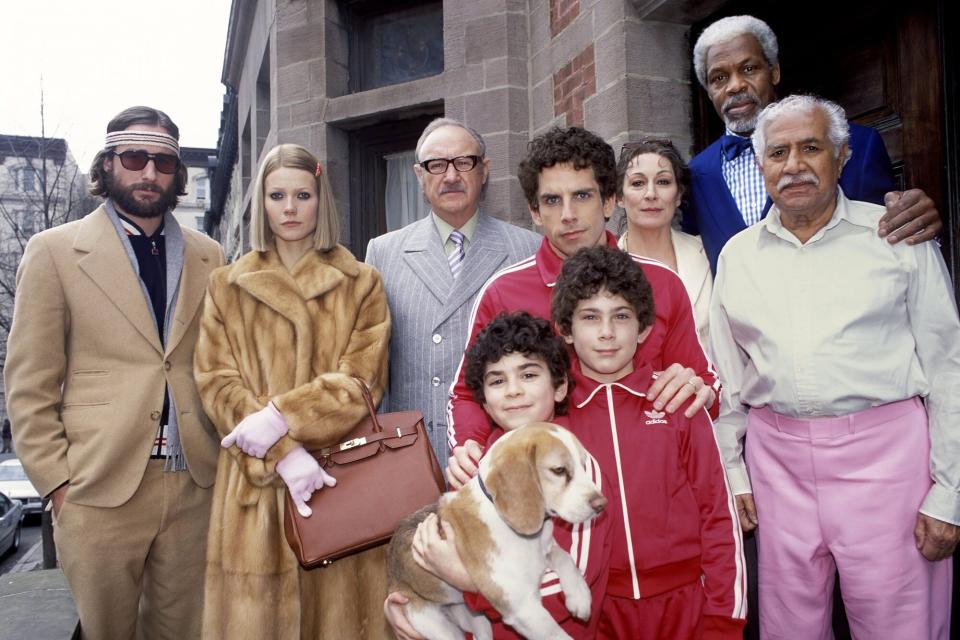
Want more movie news? Sign up for Entertainment Weekly's free newsletter to get the latest trailers, celebrity interviews, film reviews, and more.
Related content:

